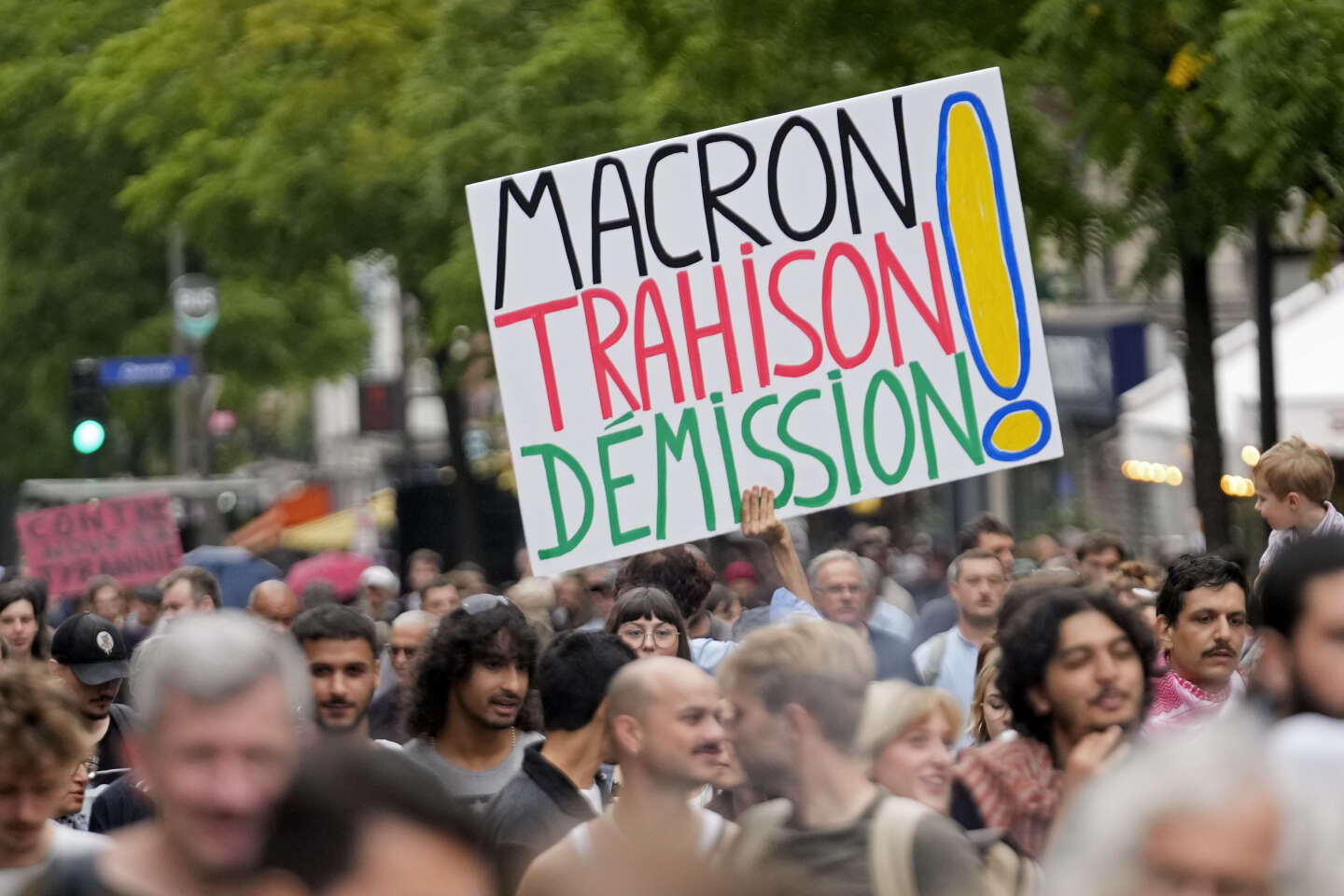Thousands of individuals in France are demonstrating in opposition to President Macron’s selection of a prime minister.
In September 2024, France witnessed widespread protests against President Emmanuel Macron’s appointment of Michel Barnier as the new prime minister. The demonstrations were a response to what many saw as a continuation of policies that fail to reflect the will of the electorate. This article examines the roots of the protests, the political context surrounding Barnier’s appointment, and the broader implications for France’s political landscape.
Macron’s Decision and Its Aftermath
The appointment of Michel Barnier, a former European Union negotiator and member of the center-right Les Républicains party, has been met with fierce resistance. Many protesters believe that Macron’s decision disregards the results of the July 2024 elections, in which a left-wing coalition, known as the New Popular Front (NFP), performed strongly. Despite the NFP’s success, Macron opted to appoint Barnier, a choice seen by many on the left as a denial of democracy.
Jean-Luc Mélenchon, leader of the far-left France Unbowed party (LFI), has been one of the most vocal critics of Macron’s move. During the protests, he accused Macron of undermining the democratic process and called on his supporters to prepare for a “long battle.” Mélenchon’s words resonated with many protesters who feel that Macron has consistently prioritized policies favoring austerity and neoliberalism over social justice and equality.
The Protests
The protests, which spanned 130 locations across the country, drew a significant number of participants. Organizers claimed that approximately 300,000 people took part in the demonstrations, including 160,000 in Paris alone, although police figures were considerably lower, with reports suggesting that 26,000 people protested in the capital. Demonstrators carried banners denouncing Macron and Barnier, accusing the president of betraying the electorate. Some called for Macron’s impeachment, reflecting the depth of frustration among many French citizens.
Protesters expressed concerns that Barnier’s government would push for policies similar to those of previous administrations, particularly in the areas of public spending cuts and immigration. Jeanne Schmitt, a 45-year-old civil servant who participated in the Paris march, voiced the opinion of many, stating that Barnier “has no social conscience” and that his government would continue along the same lines as previous ones, which many believe have failed to address pressing social and economic issues.
Political Context and Challenges for Barnier
Barnier’s appointment comes at a time of political fragmentation in France. His party, Les Républicains, is only the fifth-largest bloc in parliament, with fewer than 50 lawmakers. This puts Barnier in a precarious position, as he will need to secure support from other parties to pass key legislation, including the 2025 budget. This task is made even more difficult by the presence of two major opposition blocs: the left-wing NFP and the far-right National Rally (RN).
The left, led by Mélenchon’s LFI, has vowed to oppose Barnier’s government, accusing him of planning to implement harsh austerity measures and a tougher stance on immigration. On the other side of the political spectrum, the RN, led by Jordan Bardella, has emerged as a potential kingmaker. Bardella has signaled that while the RN may not immediately back a no-confidence vote, it holds significant power over Barnier’s ability to govern effectively, describing him as a “prime minister under surveillance”.
In addition to the domestic challenges, Barnier faces pressure from external forces, particularly the European Commission and international bond markets, to reduce France’s deficit. This financial pressure is likely to fuel further opposition from both the left and the far-right, as any attempts to implement spending cuts or tax increases could provoke additional protests and political unrest.
Broader Implications for French Politics
The protests against Barnier’s appointment are indicative of a broader political crisis in France. Macron, who was re-elected in 2022, has struggled to maintain broad public support for his centrist policies. His decision to appoint a center-right prime minister at a time when the left performed well in the elections has only deepened divisions within the country. Polls suggest that a significant portion of the French population views Macron’s actions as undemocratic, with a recent survey showing that 74% of French people believe he disregarded the election results, and 55% feel that he “stole” the election.
This political polarization is further exacerbated by the growing influence of the far-right. The RN, which has historically been marginalized in French politics, has gained ground in recent years, particularly among younger voters. The party’s tacit support for Barnier, while conditional, highlights the increasingly complex dynamics of French politics, where traditional left-right divisions are being replaced by a more fragmented and polarized landscape.
Conclusion
The protests against Michel Barnier’s appointment as prime minister reflect deep-seated frustrations with France’s political system. For many, Macron’s decision to bypass the left-wing coalition that performed well in the July elections is a sign that the president is out of touch with the electorate. As Barnier faces the daunting task of forming a government and passing key legislation, he will need to navigate a deeply divided parliament and a restless population. The future of his government—and Macron’s presidency—will likely depend on his ability to address the concerns of both the left and the far-right while maintaining the confidence of international markets and the European Union.
As France enters this new political chapter, it is clear that the protests are only the beginning of a larger struggle over the country’s future direction. Whether Barnier can rise to the challenge remains to be seen, but the protests of September 2024 have already set the stage for what promises to be a contentious and transformative period in French politics.

